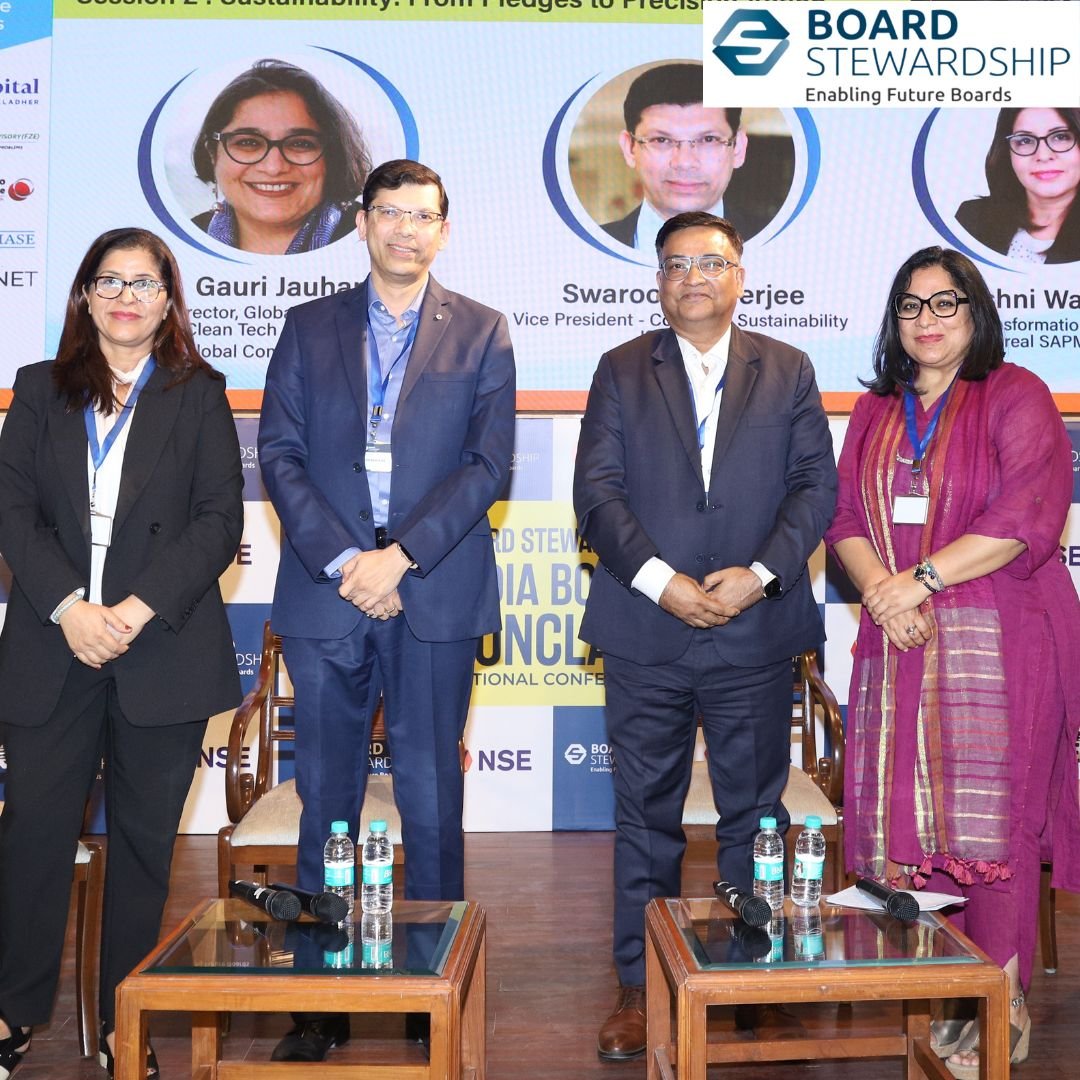
Corporate Leaders Discuss Transforming Sustainability Goals into Measurable Action at NSE
The panel discussion on “Sustainability: From Pledges to Precision Action” took place at the India Boards Conclave National Conference, held at the National Stock Exchange (NSE) in Mumbai. The session featured a distinguished panel comprising Gauri Jauhar, Executive Director at S&P Global Commodity Insights; Prabodha Acharya, Chief Sustainability Officer at JSW Group; Roshni Wadhwa, HR Transformation Director; and Swaroop Banerjee, Vice President of Corporate Sustainability at JSW Group. The panel discussed the transition from sustainability pledges to measurable actions in organisations.
Gauri Jauhar highlighted the growing need to turn sustainability pledges into precise actions. “We are in a situation now where the world needs to move from pledges like net-zero emissions or the 17 SDGs to actual action on the ground,” she said. She also addressed India’s approach to sustainability, noting that while developed countries are targeting net-zero emissions by 2050, India is targeting 2070, taking into account the complexities of the energy transition. “The energy transition is capital intensive. It requires decades of investment,” she added, underscoring the need for practical solutions like small modular reactors and nuclear fusion.
The technological advancements and the energy transition, while promising, require long-term strategies, investments, and adaptations across various sectors. This mindset shift is essential as we navigate geopolitical and environmental challenges.
Prabodha Acharya stressed the importance of sustainability as a customised concept for different organisations. “Sustainability is not a one-size-fits-all definition. It depends on how the business operates and how it manages the unintended consequences of its actions,” he said. Acharya emphasised the need for companies to define “material issues” — sustainability challenges that have the most significant impact on their business. For businesses, sustainability isn’t just about reducing carbon footprints or meeting global standards; it also involves balancing operational efficiencies and ethical practices.
Roshni Wadhwa discussed the evolution of sustainability within corporate structures. “Sustainability is no longer just an ambition or external communication; it must be embedded at the core of the organisation’s structure and governance,” she explained. Wadhwa also spoke about ESG commitments, noting that sustainability must be shared across other committees like risk, audit, and nominations. She shared how organisations like Unilever and L’Oréal integrate sustainability into their business strategies, with clear KPIs on emissions reduction and waste management.
This integrated approach ensures that sustainability is not an afterthought but a core part of the company’s strategy. She also pointed out that organisations such as Unilever have demonstrated success by embedding sustainability into their growth strategy, achieving more than 50% of their growth through their Sustainable Living Plan. This broad approach is becoming increasingly essential for businesses aiming to remain competitive in the future.
Swaroop Banerjee presented the SEED initiative at JSW Group, which focuses on involving employees in sustainability efforts. “In our SEED programme, employees contribute ideas on how to save energy and reduce carbon emissions. This initiative has led to over 400 ideas, resulting in a reduction of 18 million tonnes of CO₂ emissions,” Banerjee said. He emphasised the importance of engaging individuals at all levels in the sustainability journey, demonstrating that significant results can be achieved with simple, practical solutions.
Banerjee’s focus on leveraging the ideas and actions of frontline employees challenges the conventional notion that sustainability efforts must always rely on high-tech solutions and large capital investments. It also proves that real change can begin with small steps that build up over time, creating a culture of continuous improvement in sustainability.
The discussion emphasised the need to move beyond pledges and embrace concrete actions in the corporate world, ensuring that sustainability becomes an integral part of business strategy and operations.




